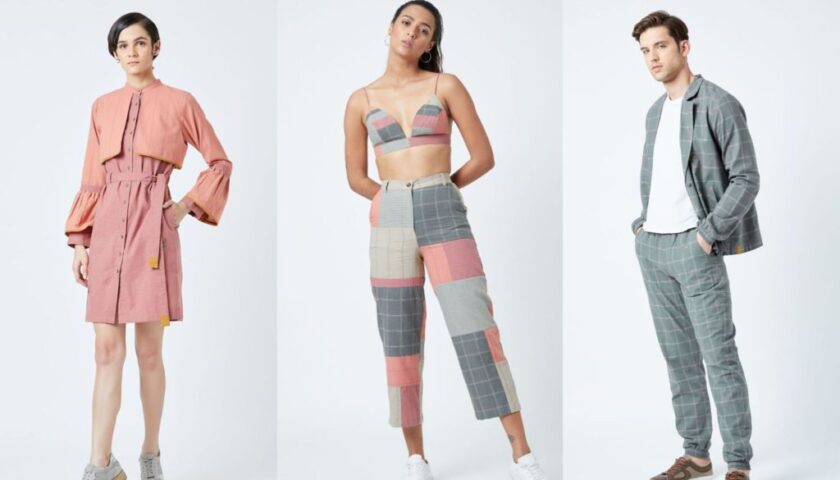171 total views, 2 views today
In an era where the fashion industry is being scrutinized for its environmental and social impact, consumers are increasingly seeking out sustainable clothing options. Sustainable fashion not only supports eco-friendly practices but also promotes fair working conditions for laborers. This growing demand has led to the emergence of numerous brands and retailers committed to offering eco-conscious, ethically produced clothing. In this guide, we’ll explore where to buy sustainable clothing and provide insights into making informed and conscious choices.
- Online Marketplaces:
- Etsy: Etsy is a haven for independent artisans and small businesses creating sustainable clothing. Many sellers on Etsy use organic and recycled materials and employ eco-friendly production methods. You can find unique, handmade pieces that align with your values.
- ASOS Eco Edit: ASOS, a popular online fashion retailer, has a dedicated “Eco Edit” section that showcases sustainable clothing from various brands. It’s a convenient one-stop shop for those who want to shop ethically while enjoying a wide selection.
- Reformation: Reformation is a trailblazer in sustainable fashion. Their collections focus on eco-friendly fabrics and practices, emphasizing transparency and environmental responsibility. Shopping with Reformation means you’re supporting a brand that’s committed to positive change.
- Brand Direct Stores:
- Patagonia: Patagonia is renowned for its commitment to sustainability and ethical production. They produce high-quality outdoor clothing with a strong focus on environmental and social responsibility. Shopping at Patagonia supports their mission to “save our home planet.”
- EILEEN FISHER: EILEEN FISHER offers timeless, eco-friendly clothing. They use organic and sustainable fabrics and have programs to recycle and upcycle old clothing, contributing to a circular fashion economy.
- Everlane: Everlane’s mantra is “radical transparency.” They provide detailed information about their supply chain and pricing, allowing you to make informed choices. Their stylish, minimalist clothing is ethically produced and reasonably priced.
- Thrift and Vintage Stores:
- Thrifting is an environmentally friendly way to shop for clothing. Secondhand stores, consignment shops, and vintage boutiques offer a wide array of pre-loved fashion items. By buying secondhand, you’re reducing the demand for new production, saving resources, and embracing unique, one-of-a-kind pieces.
- Subscription Boxes:
- Sustainable fashion subscription boxes, like Frank And Oak’s “Style Plan” or Rent the Runway, allow you to explore new styles without committing to a full purchase. These services often emphasize sustainability and may introduce you to ethical brands you might not have discovered otherwise.
- Local and Artisan Markets:
- Local artisans and designers often prioritize sustainable materials and ethical production. Visit your local craft fairs, markets, and pop-up shops to discover handcrafted, unique clothing items that support your local economy.
- Ethical Fashion Boutiques:
- Many cities now have boutiques specializing in ethical and sustainable fashion. These stores curate a selection of clothing items from various brands that adhere to eco-conscious and ethical standards. Supporting these boutiques contributes to local businesses and the ethical fashion movement.
- Fair Trade Organizations:
- Fair trade organizations like People Tree and Global Mamas focus on creating sustainable and ethical fashion. They work with artisans in developing countries, ensuring they receive fair wages and safe working conditions. Shopping with fair trade organizations empowers vulnerable communities and promotes ethical production.
- Clothing Swaps and Clothing Libraries:
- Participate in clothing swaps with friends or your local community. Clothing swaps are an eco-friendly way to refresh your wardrobe without spending money. Additionally, some areas have clothing libraries where you can borrow clothing items for a period, reducing the need for constant purchases.
- Social Media and Online Communities:
- Follow ethical fashion influencers and join online communities dedicated to sustainable fashion. These platforms can provide valuable insights, recommendations, and information on the latest trends in eco-friendly clothing.
- DIY and Upcycling:
- Consider learning how to sew, knit, or upcycle clothing items. You can transform old garments into something new and unique, reducing waste and fostering a DIY spirit.
In conclusion, there are numerous avenues to explore when looking to buy sustainable clothing. Whether you prefer to shop online, support local artisans, or engage in clothing swaps, there’s a world of ethical fashion waiting for you. Making sustainable choices in your wardrobe not only helps reduce your ecological footprint but also supports a more ethical and equitable fashion industry. So, take your time, do your research, and embrace the journey towards a more sustainable and stylish wardrobe.
